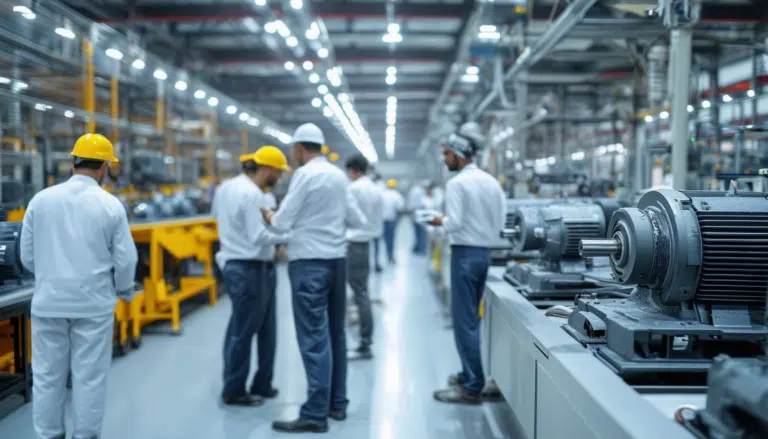Mantenimiento en vehículos de origen: cómo puede afectar el ahorro de combustible
The proper maintenance of original vehicles is essential not only for maintaining performance and safety but also for optimizing fuel efficiency. Every component of the vehicle plays a crucial role in its energy efficiency, and neglecting aspects such as tire pressure, engine condition, or filter cleanliness can lead to a significant increase in fuel consumption. Therefore, adopting a proactive approach to maintenance not only extends the vehicle’s lifespan but also contributes to a more sustainable and economical driving experience.
The proper maintenance of original vehicles is essential not only for ensuring their proper functioning but also for maximizing fuel efficiency. Through regular and appropriate maintenance, it is possible to optimize the energy efficiency of a car, which can translate into lower operating costs and reduced environmental impact. Below, the key aspects of maintenance that influence fuel consumption are explored, along with recommendations to ensure optimal vehicle performance.
Importance of regular maintenance
Regular maintenance is fundamental to ensuring that all vehicle components operate efficiently. This practice not only improves performance but also helps reduce fuel consumption. Components such as tires, the injection system, and the engine require constant attention to prevent issues that may increase gasoline expenditure.
Tire condition
Tires are one of the most critical parts concerning fuel efficiency. Maintaining proper tire pressure not only enhances safety but also translates to lower fuel consumption. It has been shown that a reduction of just one pound of pressure per square inch can impact fuel savings, so it is essential to check and adjust pressure regularly.
Engine and injection system optimization
An uncalibrated engine or a dirty injection system can lead to a significant increase in gasoline expenditure. Ensuring that the engine is in optimal condition and conducting necessary cleanings or adjustments is crucial for efficiency. Investing in periodic check-ups will allow early detection of problems and prevent higher fuel consumption.
Filters and their impact on fuel economy
Dirty air and fuel filters can restrict flow and affect engine performance. Changing the filters according to the manufacturer’s recommendations helps keep the engine running efficiently, which translates into considerable fuel savings. Ignoring this aspect of maintenance can result in unnecessary expenditure and a greater environmental impact.
The role of efficient driving
In addition to maintenance, the way the vehicle is driven is also intrinsically related to fuel savings. Adopting efficient driving habits can reduce consumption by up to 15%. This includes avoiding sudden accelerations, using appropriate gears, and reducing air conditioning use when possible.
Tips to avoid unnecessary fuel expenditure through maintenance
Implementing simple yet effective maintenance practices is key to maximizing savings. Actions such as scheduling regular inspections, checking engine fluid levels, and ensuring that all systems are functioning properly contribute to greater efficiency. These care measures not only benefit the vehicle’s performance but also reduce the costs associated with fuel.
For more information on how proper maintenance can influence fuel economy, you can consult this article.
Final considerations on the impact of maintenance on fuel savings
A proactive approach to maintaining original vehicles is essential not only for ensuring optimal performance but also for promoting sustainable practices that help reduce environmental impact. By keeping the vehicle in excellent condition and adopting responsible driving habits, a substantial savings in fuel can be achieved.
To learn more about the relationship between maintenance and ecological driving, you can visit this page.
The proper maintenance of original vehicles is crucial for ensuring their optimal performance and, at the same time, contributing to fuel efficiency. Every component of the vehicle, from the tires to the injection system and the engine, plays a crucial role in energy efficiency. Proper care and inspection of these elements can prevent problems that, if left unaddressed, lead to a significant increase in fuel consumption.
Studies have shown that poor tire pressure, for example, can increase gasoline expenditure. Keeping them properly inflated can translate into lower fuel displacement. Likewise, a poorly adjusted engine may not burn fuel efficiently, resulting in higher costs. Therefore, paying attention to the condition of all mechanical parts and systems is vital for prolonging the vehicle’s lifespan and reducing operational fuel costs.
In addition to mechanical components, driving style also impacts fuel efficiency. Adopting efficient driving practices can complement maintenance actions. A driving style that avoids sudden accelerations and unnecessary braking helps maximize fuel performance, and this is even more effective when the vehicle is maintained in optimal conditions.
Ultimately, investing in preventive maintenance not only improves the vehicle’s performance and safety but also translates into significant long-term savings. Keeping an original vehicle in good condition is a favorable decision for both the driver and the environment by contributing to the reduction of pollutant emissions and promoting a more responsible use of energy resources.





